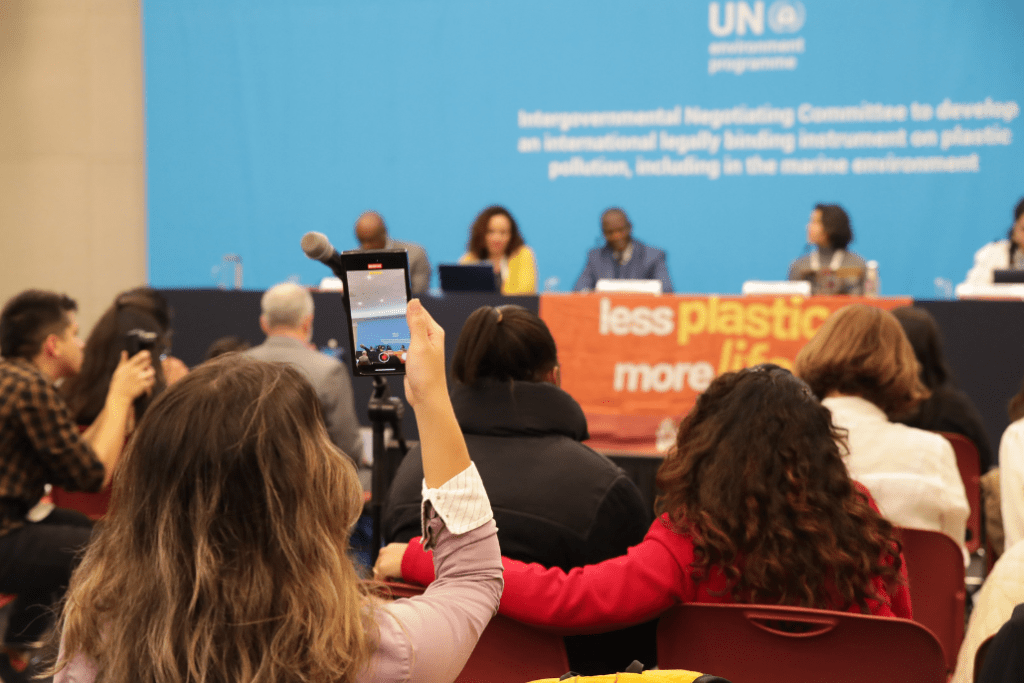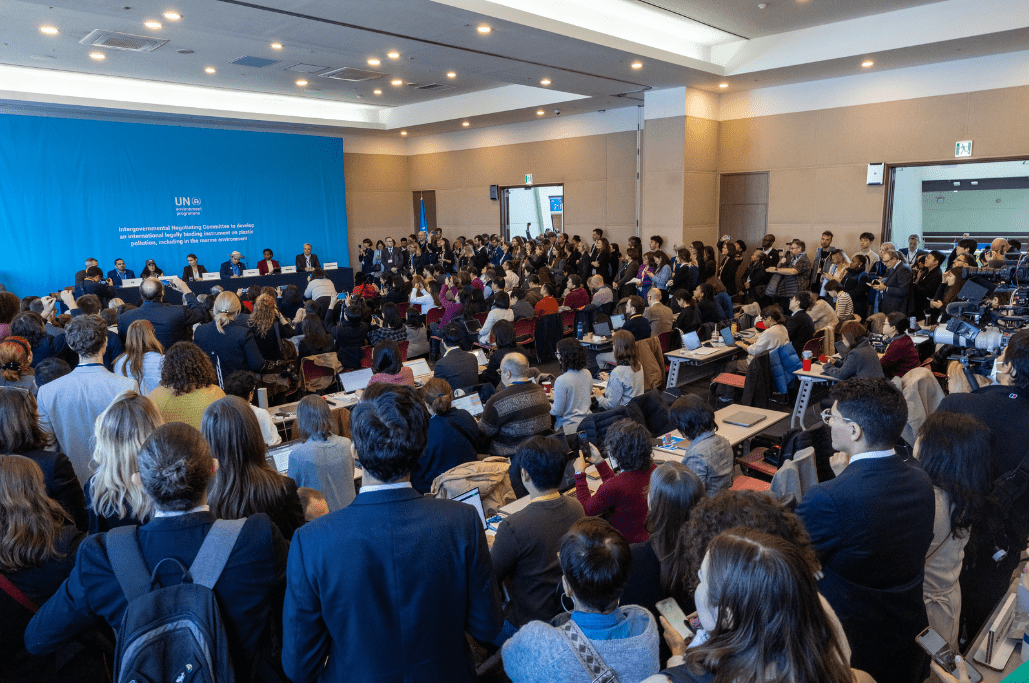Two Years of Negotiations, No Plastics Treaty in Sight
After a week of heated debate, the fifth and final meeting of the Intergovernmental Negotiating Committee (INC) ended in a cliffhanger. The critical INC-5 conference in Busan, South Korea, was supposed to culminate in an international treaty to end plastic pollution. However, delegates could not agree on the scope of the treaty and spent the week arguing over almost every detail.
“As we leave Busan, it is clear that there are still promises to keep. And it is clear that the world still wants and demands an end to plastic pollution,” said Inger Anderson, executive director of UNEP.
The meeting saw a great division form between petrochemical-producing nations and climate activist groups. The former warned against the economic impact of cutting plastics out completely, while the latter accused them of delaying negotiations.
The Most Contentious Topic: Plastic Production
Of the 177 countries in attendance at INC-5, over 100 wanted to mandate plastic production caps worldwide. This group, many of whom are part of the “high ambition coalition” includes the EU, UK, Australia, Canada, Rwanda, Ghana, and Kenya.
Their proposal to “reduce production and consumption of primary plastic polymers to sustainable levels,” was supported by environmental organisations like the WWF and Ellen McArthur Foundation. However, it was met with pushback from China, Russia, and the Arab Group. These nations were against the idea of reducing plastic production and wanted to shift the focus to recycling instead.
“The objective is to end plastic pollution, not plastic itself,” argued a delegate from Kuwait, where 90% of export revenue comes from crude oil. This country, like many others in the region, relies on petrochemicals for economic growth. Capping plastic production could be catastrophic to such a nation, and thousands of people would lose their jobs.
Back home, the plastics industry has been identified as a key sector for stimulating economic growth and reducing South Africa’s high unemployment rate. Capping production levels could hinder our progress towards re-industrialisation.
The International Council of Chemical Associations (ICCA) says the disagreement at INC-5 was to be expected. “The outcome underscores the complexity of addressing plastic pollution on a global scale,” says Council Secretary Chris Jahn, “We need further deliberations to achieve an effective, inclusive and workable treaty.”
In Second Place: Chemicals of Concern and Human Health
Another great point of contention at INC-5 was the banning of certain types of plastic and the chemicals within that plastic. Known as “chemicals of concern” these are additives that can leach out of plastic products and into the environment or even our food and water. Some examples are BPA, phthalates, alkylphenols, and dioxins.
Extensive scientific evidence shows that these chemicals pose severe health risks, especially to women and children. For example, BPA has been shown to affect brain development and increase the risk of Polycystic Ovary Syndrome and breast cancer.
Back at the INC-4 meeting in April, most nations agreed that removing chemicals of concern from production was important. At the end of INC-5, however, the draft treaty text still had no concrete guidelines for banning or phasing out these substances. Instead, it proposed optional suggestions with no legally binding obligations.
To this, the “ambitious countries” group responded saying they would not accept a treaty that did not regulate toxic chemicals. At the closing plenary, Rwandan negotiator Juliet Kabera spoke on behalf of 85 nations, demanding a strong treaty with “binding provisions” for the phase-out of harmful plastics. Her speech was met with a standing ovation from nearly all delegates in the room.
The Issue of Consensus
Despite the fact that the majority of countries at INC-5 expressed similar views on chemical bans and plastic production caps, they could not overrule the minority. This is because of the UN’s consensus process. Following this process, all member states must come to some form of agreement before a decision can be made. Instead of taking a vote, parties must negotiate a fair compromise.
While this may be frustrating for some, it does allow for equitable decision-making. Developing a global plastics treaty is no small undertaking and it must be thoroughly thought through.
However, concerns are brewing over the possibility that compromise will weaken the treaty. WWF’s plastic policy leader Eirik Lindebjerg was especially vocal about this during INC-5. “At this stage in the negotiations, there are two options left,” he said passionately, “Deliver a watered-down treaty that leaves the plastic crisis in the hands of the next generation to fix once again, or realize that when it comes to plastic pollution, some countries will choose profit over planet.”
Meeting Adjourned Until 2025 – What Happens Now?
Despite the non-consensus, INC-5 ended on a high note. The fierce debate between delegates is a testament to the enthusiasm and passion the world shares for tackling the plastic crisis. After two years of negotiations, we are one step closer to developing a piece of legislation that will change the course of history.
INC-5 delegates agreed to resume the discussion in 2025, although no official date has been set yet. Until then, the world will be watching. The plastics industry affects everybody and we should all be reflecting on the changes we would like to see. For more information about plastics in South Africa or how to get involved in environmental discourse, please get in touch.


